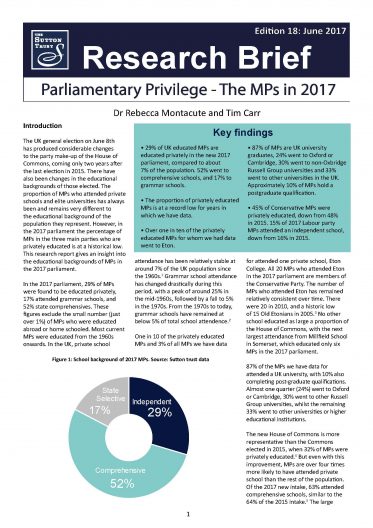Report Overview
The UK general election on June 8th has produced considerable changes to the party make-up of the House of Commons, coming only two years after the last election in 2015. This report analyses the education backgrounds of new MPs, looking at proportion of MPs who attended independent and selective schools and elite universities. It builds on our report on the educational background of the 2015 Parliament which you can see here.
This report, authored by Rebecca Montacute and Tim Carr, shows that educational background is still a strong determinant of opportunity to become an MP. With independent and grammar schools still disproportionately attended by the better off, there is still a long way to go until there are truly equal opportunities in society.
This report has been updated based on figures available after our original report was published on the 9th of June 2017. As of the 29th of June 2017, we have found information on the school background for an additional 7 MPs, and university background for an additional 6 MPs. Our figures have been updated accordingly.
